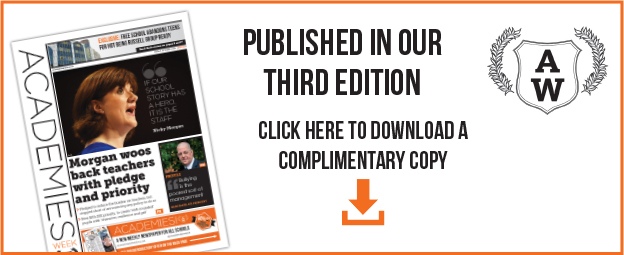Each week during the political conference season we will be inviting a commentator to give their views on what education policies they wish to see announced.
Party conferences are odd occasions. Remnants of a previous age, in which political mass-engagement was the norm, they are now attended by a fraction of the population and for Labour and the Conservatives are little more than opportunities for party dignitaries to make speeches that they, but few others, consider vitally important.
Liberal Democrat conference is a little different. The party retains a democratic structure in which the responsibility for policy-making lies with the members, not the leadership. Many a new leader has found himself humbled in clumsy attempts to bypass an often difficult party congregation.
With the media assembled en masse, conference provides a rare opportunity for the party to communicate to the public what we are about, what our vision for the future is; rather than simply responding to the day-to-day political events that dominate for the rest of the year.
Education has historically been a key area of distinctiveness for the Liberal Democrats, from Paddy Ashdown’s memorable campaign for an extra penny in the pound on income tax to pay for increased education spending, to the party’s flagship 2010 policy of a pupil premium to target extra investment at the most disadvantaged children.
Given that the pupil premium was championed personally by Nick Clegg, having co-authored a pamphlet on the policy way back in 2002, it is unsurprising to see the party seeking to go further if we find ourselves back in government after next year’s election.
David Laws, the Liberal Democrat schools minister, is not making a set-piece speech to conference this year, but in his role as chair of the committee writing the party’s next manifesto he is introducing a paper setting out the broad themes that document will contain.
Having delivered the pupil premium, it looks like the 2015 manifesto will concentrate on early years education, protecting the budget from cuts and introducing an enhanced early years pupil premium.
This is surely right given that the early years of children’s lives are when the most difference can be made. While my party’s inability to implement its policy on tuition fees has undoubtedly damaged the party, it was and is the correct decision at a time of real fiscal challenges to focus scarce resources on the time in a child’s life where extra educational investment can have a truly transformative effect on life chances.
As welcome as these commitments are, though, the Liberal Democrats need to be more ambitious in our aims and less conservative in our policies for delivering them.
There is still great ambivalence, and even outright hostility, to academies and free schools within the party. This is a mistake. Freedom for schools and choice for parents — the hallmarks of academies and free schools — fit squarely within a liberal outlook for the delivery of effective and accountable public services, and ought to be fully supported by all Liberal Democrats.
As a party we also need to embrace innovation. Those who value uniformity and centralisation over diversity and devolution will always deride the ‘postcode lottery’ that comes with the liberalisation of public services, but Liberal Democrats should stand firm. It is only by individual teachers and schools having the freedom to innovate, to adapt local provision to local need, that we can develop the excellence we all want to see.
We also need to be open to new ideas. School vouchers have long been talked about, but have rarely been implemented. They have recently been put back on the agenda by Liberal Democrat MP Jeremy Browne. Why not have a trial of them in the next Parliament?
The Liberal Democrats have a proud history when it comes to our commitment to education and we have demonstrated in government that we have the policies and people to improve the life chances of Britain’s children. But with education systems around the world modernising and improving attainment every day, now is no time for caution. As we gather in Glasgow, just seven months out from a general election, that is a fact that should be at the forefront of all our minds.
Nick Thornsby is a lawyer, co-chair of the Liberal Reform and a member of the editorial team at Liberal Democrat Voice








Your thoughts